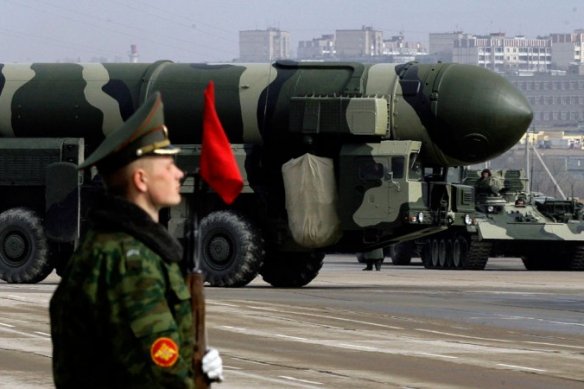The words that Russian President Vladimir Putin chose for describing the nuclear angle of the special operation for seizing and annexing Crimea in March 2014, might appear so odd that it is well-nigh impossible to make sense of them. “Yes, we were ready,” he said to the question about whether the option of putting strategic forces on high alert was considered. He then clarified that these forces were always on high readiness status. And when “some military experts” advised him to use all available means of deterrence, he said “No,” according to the propaganda documentary shown two weeks ago on Russian television.

Russian Topol-M intercontinental ballistic missile is displayed during a Victory Day parade rehearsal on April 24, 2009 in Alabino, outside Moscow, Russia. Photo: Dmitry Korotayev
The message is perhaps confusing, but regardless we should take Putin’s nuclear discourse very seriously. Broadly ignorant of how nuclear deterrence works, Putin and his cronies are both irresponsible and reckless when it comes to using nuclear threats for political purposes.
Ukraine is a case in point. What could have been the result of a high nuclear alert if Ukrainian garrisons in Crimea had decided to resist the arrival of “polite green men”—Russian soldiers without identification insignia?
Or for that matter, if under these circumstances the government in Kyiv had decided to send reinforcements to repel the Russian invasion. Nuclear options were entirely redundant for that projection of power, so the only meaningful interpretation of this “honest and open position” (as Putin defines his own stance) is to see it as an attempt to shift the focus from the decision-making on Crimea then to the power-play with the West now.
- Read more at the Brookings Blog Order From Chaos – Foreign Policy in a Troubled World, where the full text was posted 1 April.